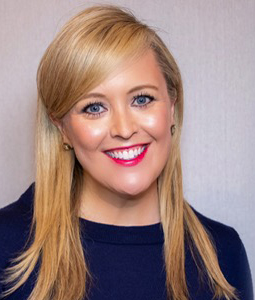Karin Ross Promoted to EVP of Government Affairs
FOR IMMEDIATE RELEASE
CONTACTS:
Lisa Powers, powersl@personalcarecouncil.org, (202) 297-1232
Stefanie Harrington, harringtons@personalcarecouncil.org, (202) 615-6558
Jamie Kurke, kurkej@personalcarecouncil.org, (202) 258-5285
Karin Ross Promoted to EVP of Government Affairs
Industry Veteran Will Lead U.S. Public Policy for the Beauty and Personal Care Sector
WASHINGTON, D.C. – The Personal Care Products Council (PCPC) announced today the promotion of Karin Ross to executive vice president of Government Affairs, the organization’s top U.S. advocacy officer.
 “For more than a decade, Karin has been an integral part of PCPC. Her counsel has been critical in navigating our efforts at the state level, particularly in California, where she established an effective grassroots coalition and strong relationships in Sacramento,” said Lezlee Westine, PCPC’s president and CEO. “At a time when every industry is facing uncertainty and challenges post pandemic, we are very fortunate to have someone as experienced and well respected as Karin. I am confident she will excel at leading our efforts with the administration, government agencies, Congress and state policymakers,” Westine said.
“For more than a decade, Karin has been an integral part of PCPC. Her counsel has been critical in navigating our efforts at the state level, particularly in California, where she established an effective grassroots coalition and strong relationships in Sacramento,” said Lezlee Westine, PCPC’s president and CEO. “At a time when every industry is facing uncertainty and challenges post pandemic, we are very fortunate to have someone as experienced and well respected as Karin. I am confident she will excel at leading our efforts with the administration, government agencies, Congress and state policymakers,” Westine said.
Ross has directed complex policy issues throughout her career. She has a long history overseeing multi-stakeholder engagement across the nation working to achieve public policy goals. She regularly testifies before state officials and serves as an industry spokesperson on key legislative issues.
In her new role, Ross will lead all U.S. advocacy and legislative issues and policy developments that impact the beauty and personal care industry at the federal and state level. Ross will harness her expertise at the state level as many issues start there before making their way to Capitol Hill. She will remain a tireless advocate for PCPC’s 600 member companies – leading cosmetics, fragrance and personal care products manufacturers and suppliers.
“I’m honored to continue representing this dynamic industry – some of the most trusted and beloved brands in beauty and personal care today. I will continue to enhance our efforts to ensure our members can provide the safe and innovative products consumers rely on every day,” said Ross.
Ross earned her bachelor’s degree from the University of Delaware and has completed professional education programs at the Public Affairs Council Institute and the State Government Affairs Council.
###
Based in Washington, D.C., the Personal Care Products Council is the leading national trade association representing the global cosmetic and personal care products industry. Founded in 1894, the Council’s more than 600 member companies manufacture, distribute, and supply the vast majority of finished personal care products marketed in the U.S. As the makers of a diverse range of products millions of consumers rely on every day, from sunscreens, toothpaste and shampoo to moisturizer, lipstick and fragrance, personal care products companies are global leaders committed to product safety, quality and innovation.
For more information about cosmetic and personal care products and their ingredients, please visit www.cosmeticsinfo.org.
